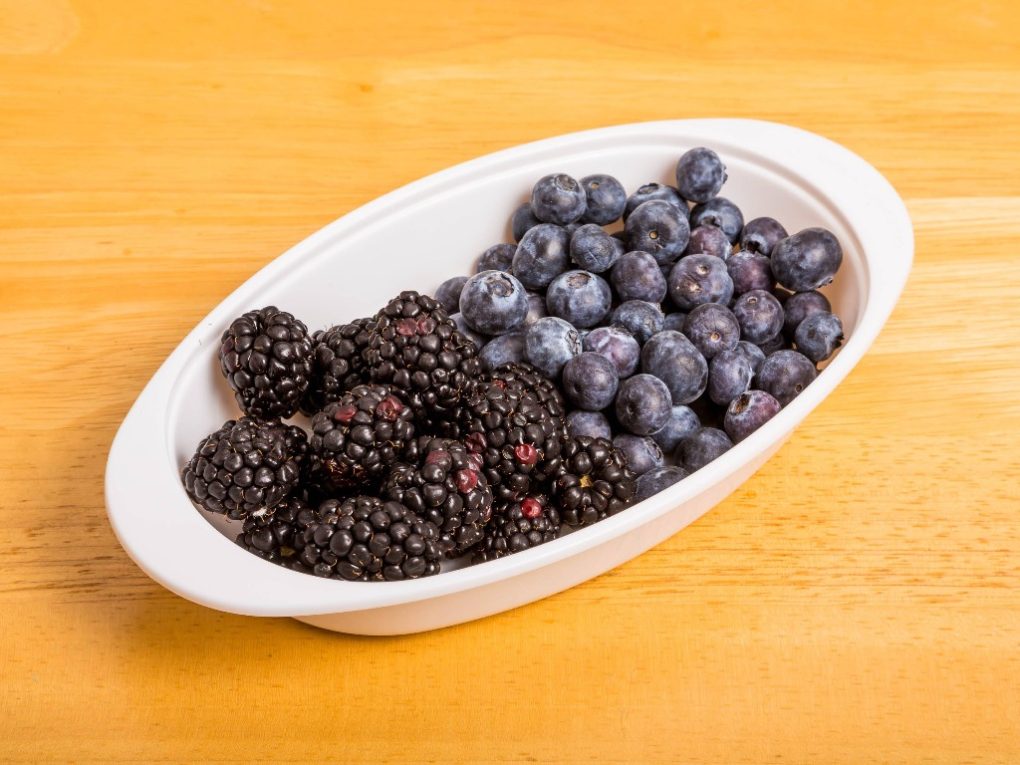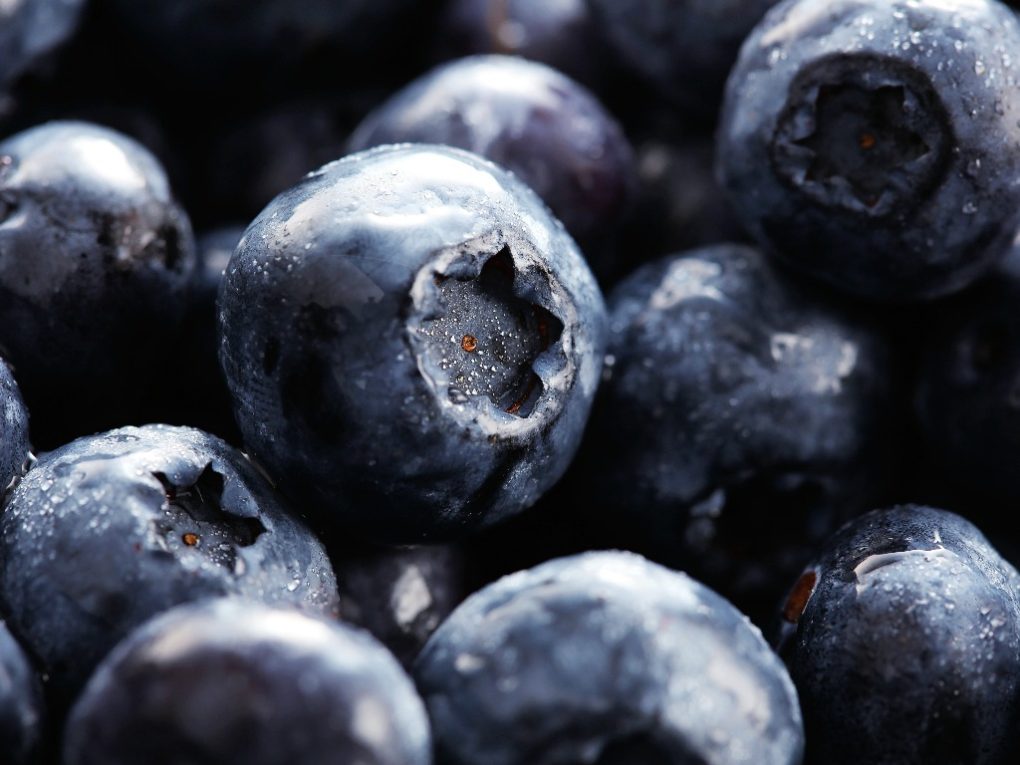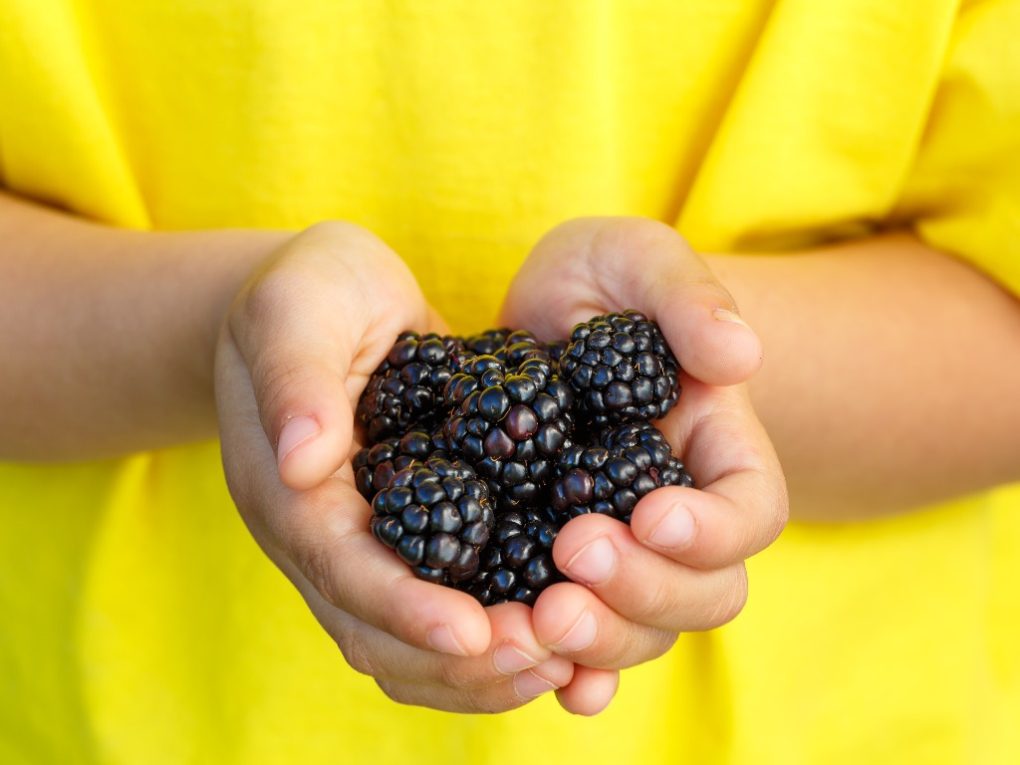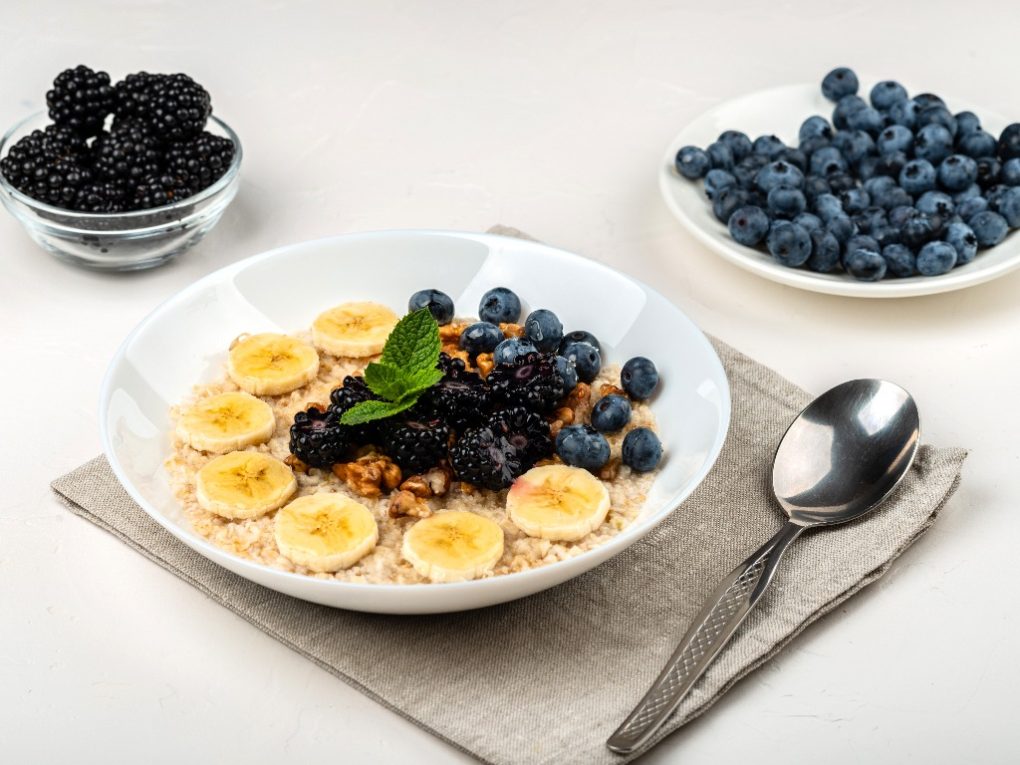Blueberries vs. Blackberries: A Comprehensive Comparison
Blueberries and blackberries are delicious and nutritious berries but differ in taste, appearance, and nutritional value. Blueberries have a sweet, slightly tart flavor, while blackberries have a more complex, slightly tart flavor with a hint of sweetness. Blackberries can also have a slightly earthy taste.

While blueberries and blackberries share many similarities but also some key differences in taste, blueberries are typically sweeter and less tart than blackberries.
On the other hand, Blackberries have a more complex flavor profile, combining sweetness and tartness. Additionally, blackberries are typically larger and juicier than blueberries, making them a great option for snacking or adding to smoothies and desserts.
Table of Contents
Nutritional Comparison
Regarding nutritional value, blueberries, and blackberries are packed with vitamins and minerals, but some differences make them stand out.
One cup of blackberries contains:
- 62 calories.
- 2 grams of protein.
- 0.7 grams of total fat.
- 13.8 grams of carbohydrates.
- 7.6 grams of fiber.
- 7 grams of sugar.
- 233 milligrams of potassium.
- Thirty milligrams of vitamin C.
On the other hand, one cup of blueberries has 84 calories, 1.1 grams of protein, 0.5 grams of total fat, 21.5 grams of carbohydrates, 3.6 grams of fiber, and 15 grams of sugar.
Blackberries are a great vitamin C source for maintaining healthy skin, bones, and cartilage. They also contain more fiber than blueberries, which can help regulate digestion and prevent constipation. Additionally, blackberries are rich in antioxidants, which can help protect the body against damage from free radicals.
Blueberries, on the other hand, are known for their high levels of vitamin K, which is important for bone health, according to Medical News Today. They also contain anthocyanins, pigments that give them their blue color and have been proven to a reduced risk of heart disease and cancer. Blueberries are also lower in calories than blackberries, making them a fantastic option for those watching their weight.
Health Benefits of Blueberries
Blueberries are a popular and delicious fruit that offers a range of health benefits. Here are some benefits of incorporating blueberries into your diet:

- Rich in antioxidants: Blueberries contain antioxidants, which help protect your body from damage by free radicals. This can help reduce your risk of chronic diseases, such as cancer, heart disease, and Alzheimer’s disease.
- May improve heart health: Blueberries are rich in compounds called anthocyanins, which have been proven to help lower blood pressure and improve cholesterol levels. This can reduce your risk of heart disease.
- May improve brain function: Some studies have found that blueberries may help improve cognitive function in older adults. This may be due to their high levels of antioxidants and anti-inflammatory compounds.
- May help regulate blood sugar: Blueberries have a low glycemic index, which means they are less likely to cause spikes in blood sugar levels. This makes them a good choice for people with diabetes or those looking to lower their blood sugar levels.
- Good fiber: Blueberries are a good source of dietary fiber, which can help keep you full and satisfied. This can be helpful for weight management and digestive health.
Health Benefits of Blackberries
Blackberries offer many health benefits. Here are some of the ways that blackberries can benefit your health:

- High in Antioxidants: Blackberries are rich in antioxidants, which can help protect your cells from damage from free radicals.
- Good for Digestion: Blackberries are rich in fiber, which can keep your digestive system healthy and regular. I’ve tried eating blackberries regularly and never had regular digestion before!
- May Improve Brain Function: Some studies suggest that the antioxidants in blackberries help improve cognitive function and protect against age-related decline in brain function.
- May Help Manage Blood Sugar: Blackberries are low in sugar and high in fiber, which can help regulate blood sugar levels.
- May Improve Heart Health: Blackberries contain compounds called flavonoids, which have been shown to improve cardiovascular health by reducing inflammation and improving blood flow.
Taste and Culinary Uses
Blackberries and blueberries have distinct flavors that make them unique in their ways. Blackberries have a sweet and tart flavor with a slightly bitter aftertaste. On the other hand, blueberries have a tangy and sweet flavor with a subtle hint of sourness. Both berries are versatile and can be used in various culinary dishes.
Blackberries are commonly used in jams, jellies, and pies and can also be used in savory dishes such as salads, sauces, and marinades. Blackberries are often paired with meats such as pork and game to add a sweet and tangy flavor. Additionally, blackberries can be used in desserts such as cobblers, crisps, and ice cream.
Blueberries are a popular ingredient in baking and desserts, commonly used in muffins, cakes, and pancakes. Blueberries can also be used in smoothies, yogurt, and oatmeal, and blueberries are used in savory dishes such as salads, sauces, and marinades.

Blueberries are often paired with cheeses such as feta and goat cheese to add a sweet and tangy flavor. Regarding nutritional value, black and blueberries are highly antioxidants and considered superfoods, low in calories, fiber, and a good source of vitamins and minerals.
| Blackberries | Blueberries |
| Sweet and tart flavor | Tangy and sweet flavor |
| Used in jams, pies, and savory dishes | Used in baking, smoothies, and savory dishes |
| Paired with meats such as pork and game | Paired with cheeses such as feta and goat cheese |
Availability and Cost
Both blueberries and blackberries are available in the United States, and their availability varies depending on the season. Blueberries are typically in season from May to September, while blackberries are in season from June to August. However, both berries can be found in grocery stores year-round, thanks to imports from other countries.
Regarding cost, the price of blueberries and blackberries can vary depending on several factors, such as the time of year, the location, and whether they are organic or conventionally grown. According to the Pricer, a pint of blueberries can cost between $1 and $4, while blackberries can cost between $2 and $5 per pint. Organic berries are more expensive, ranging from 20% to 40% higher than conventionally grown berries.
It’s worth noting that the price of berries can fluctuate throughout the year due to supply and demand. For example, in 2020, the average price of conventional blueberries was $8.31 per kilo, 94% higher than in 2019, according to FreshFruitPortal.com.
Meanwhile, blackberries reached their highest average prices in the last five years in the U.S. market in week 13 of 2022, with prices reaching a historic $10.17/kg, 74% higher than those recorded in 2020 for the same date, according to Agronometrics in Charts.
